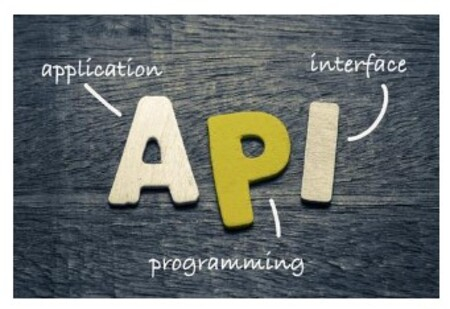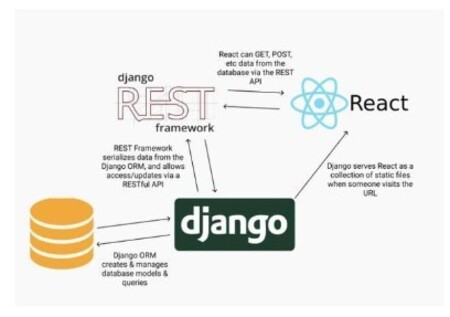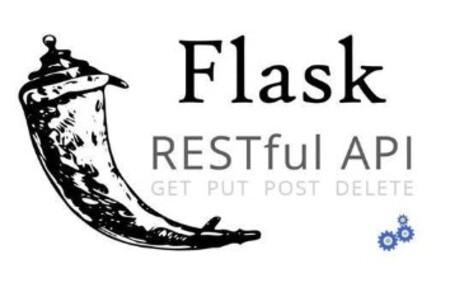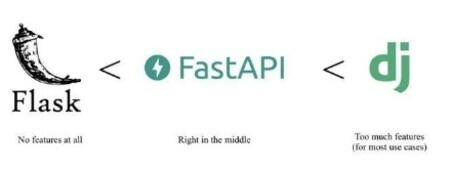
 Data Structure
Data Structure Networking
Networking RDBMS
RDBMS Operating System
Operating System Java
Java MS Excel
MS Excel iOS
iOS HTML
HTML CSS
CSS Android
Android Python
Python C Programming
C Programming C++
C++ C#
C# MongoDB
MongoDB MySQL
MySQL Javascript
Javascript PHP
PHP
- Selected Reading
- UPSC IAS Exams Notes
- Developer's Best Practices
- Questions and Answers
- Effective Resume Writing
- HR Interview Questions
- Computer Glossary
- Who is Who
What is a good Python framework for building a RESTful API?
In this article, we will learn some of the good Python frameworks for building a RESTful API.
APIs are a fast and simple approach to building applications that can connect to other services. APIs are interfaces that allow developers to utilize their programming talents in one language (Python) and use them with whatever service they choose. Python is a popular API programming language due to its high level of abstraction and strong library support.
What Is an API?
The term "API" refers to a layer or interface that allows two applications to communicate without having to understand how they work. APIs can be implemented in a variety of ways, but the basic idea is that APIs provide a layer of abstraction between two software components.

APIs enable developers to use an interface instead of developing new code or learning a new language. They can be readily scaled and utilized across apps without having to rewrite them for each new project.
While APIs are advantageous, there are numerous alternatives to consider. The following is a list of the top 6 Python APIs.
Django REST Framework
Django REST, a Python-based REST framework, is commonly used by developers to create web APIs. Known by its acronym, REST, representational state transfer is a protocol for exchanging information between systems that is based entirely on the internet. It uses HTTP for inter-machine communication. The Django rest framework includes several standard methods such as GET, PUT, POST, and DELETE.
Django Rest Framework is basically a toolkit that we may use to create REST APIs using the Django programming language. It gives our system a tonne of new capability. Pip may be used to quickly and easily install the Django REST framework on your computer. On your computer, you must first have Python 3.5+ and Django installed before you can install Django REST.
Features
APIs that are web-browsable and have a high level of accessibility for developers
Multiple in-built authentication policies
Serialization that supports both ORM and non-ORM data sources
Excellent resources for learning and reference.
A robust network of social support.
Red Hat, Mozilla, Heroku, etc., rely on it, so you know it's reliable.
Has features like testing, caching, throttling, and automated URL routing to Django.

Flask Restful
A Flask framework module called the Flask Restful plugin enables programmers to create Rest APIs fast. Because it consists of a relatively small module, it is well known for creating micro web services.
The APIs provided by the Flask Restful plugin has a lightweight feel, making it simple to construct APIs rapidly and integrate them into existing projects. It also enables the organization of APIs into modules for more complicated APIs with many endpoints. If you want to be able to modify every part of your API, consider giving this framework a shot.

FastAPI
In spite of its name, FastAPI is one of the most powerful and fast Python frameworks for developing application programming interfaces(APIs). It is an all-inclusive web framework suite. You can write code 200 to 300% more quickly thanks to FastAPI. FastAPI is rapidly growing in popularity among Python users, with over 200 contributors and 28.6K starts to date.
FastAPI is an asynchronous web application framework that is based on the ASGI specification. Some of its features are as follows.
OpenAPI, JSON format, and automatic client code creation - all based on open standards.
A swagger user interface that allows you to call and test APIs from a browser.
Developer-Friendly API Documentation with Interactivity.
Reduces by 40% the number of bugs caused by developer errors in code.
Reduces the amount of duplicate code.
Automatic completion and other editing conveniences (PyCharm, VSCode).
It has integrated security and authentication.
Automatic dependency management through a "dependency injection" technique.
Provides Unlimited support for plugins.
Completely compatible with Starlette and Pydantic.
PyTest is used to test applications.
SQL databases, NoSQL databases, and GraphQL are supported.

Falcon
Falcon is a web framework for creating robust and fast-loading backend apps and microservices. The API endpoints in Falcon are specified using a class-based, object-oriented interface.
Falcon is a fantastic choice if you need APIs that are simple to test and maintain. Falcon APIs have a minimal design that makes them lightweight and easy without a lot of overhead or boilerplate code. Consider using this toolkit if you require something that uses little system resources while providing good performance.

Turbo Gears
Turbo Gears is a small API framework that works with both Python and JavaScript APIs. Turbo Gears is a full-stack quick development framework that allows you to create a database-driven, ready-to-extend application in minutes.
Speed is one of Turbo Gears' key objectives. As a result, it performs numerous optimizations behind the scenes to deliver high-performance APIs. If you're searching for a simple toolkit, give this one a shot.

Bottle
The bottle is a lightweight and simple Python WSGI micro web framework. It's a single-file module with no additional prerequisites other than the Python Standard Library.
Bottle APIs are simple to create because they are designed to be thus. Because there is no routing, APIs can be as basic or as complicated as needed. Bottle APIs offer a flexible framework that allows you to group APIs into sub-modules and middleware components as needed.

Hug
A hug is a fantastic microframework for developing local packages, CLIs, and APIs. You may use it throughout the code after creating the API just once. Hug achieves extremely high performance because of Cython compilation and resource consumption that only occurs when necessary.
Using a pip, a hug may be installed in a single line. It's one of the easiest methods for constructing Python 3 HTTP REST APIs.Hug designed APIs such that the API's core business functionality is isolated from the API's version dependencies and interfaces. It provides a variety of interfaces designed to make the process of creating APIs easier for programmers.
Features
It follows the write-once and uses the anywhere principle.
Multiple interfaces provide access to the API's logic (CLI, HTTP, or a local function)
The hug.test module is provided to facilitate comprehensive API testing in Python.
Documentation that is clean and simple to understand

Conclusion
First, we learned what an API is in this article, and then we learned 6 different Python rest frameworks and their features for creating rest APIs.

